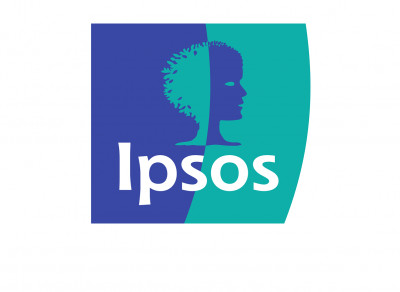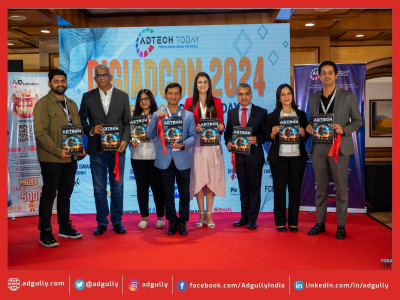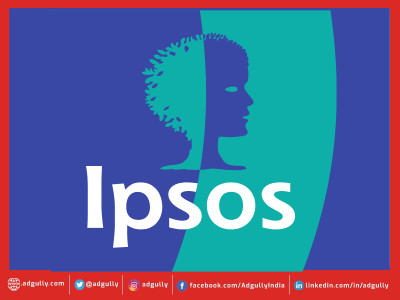75 years of World War II - 53% Indians support ceremony in remembrance
This year marks the 75th Anniversary of the end of World War II in 1945. Many countries will be commemorating the victory of the Allied Forces over Germany on May 8th and 9th and over Japan over Aug 14th & 15th. While it was not our war, during the World War II, India was controlled by the UK and about 81,000 Indian soldiers (including from Pak, Nepal and Bangladesh) were martyred in WWII (1939-1945) in a multifrontal war- in Europe against Germany in North Africa against Germany and Italy, in South Asian region defending India against Japan, in Burma against Japan, liberating British colonies of Singapore and HongKong against Japan.
53% Indians support holding of ceremony, marking 75 years of World War II. 55% global citizens support it, while Russia (81%) and Great Britain (80%) endorse it most.
"It was not our war. Indians would favor the ceremony only to remember our martyrs, to remember the 81,000 unsung Indian heroes who sacrificed with their lives, to enter the annals of history," says Parijat Chakraborty, Country Service Line Leader, Public Affairs and Corporate Reputation, Ipsos India.
56% Indians said they were proud of India’s contribution to the war. 46% global citizens too held that view. For Russia (83%) and Great Britain (80%), the sentiment was far more pronounced.
"Here again, pride is for our Indian heroes who fought this war and the countless who died," added Chakraborty.
1 in 3 Indians (33%) said their relatives/ ancestors fought World War II.
1 in 5 Indians said their relatives/ ancestors died fighting WW II.
1 in 5 Indians lost their relatives to deliberate genocide, massacre, bombings in World War II.
Global findings
Ahead of the 75th anniversary of the Allied Forces’ victory over Nazi Germany, an Ipsos survey finds that 55% of men and women across 28 countries agree on the importance of holding ceremonies in remembrance of World War II
Russia, Great Britain, Ukraine, the United States, China, and Poland are the countries surveyed whose citizens most tend to be proud of their nation’s role in the conflict.
Throughout the world, many have a direct, familial link to the conflict. Globally, 40% of those surveyed report that some of their relatives or ancestors served in the armed forces during World War II, 21% that some of them died fighting in it, and 15% that some died because of deliberate genocide, massacres, mass-bombings, disease, or starvation during that war.
World War II’s influence is still felt strongly. Globally, 42% agree that political life in their country is still influenced by the events and the outcomes of the conflict. Among all the countries surveyed, this view is most widely held in Poland, China, Germany, Russia, and Great Britain.
The survey, titled 75th Anniversary of the End of World War II: A Global View, was conducted among 20,005 adults under the age of 75 across 28 countries on the Global Advisor online platform between March 20 and April 3, 2020.
Detailed Findings
- Holding ceremonies in remembrance of World War II is deemed important by a majority in 16 of the 28 countries and by 55% globally.
- Among the countries surveyed, those where holding ceremonies in remembrance of World War II is most widely considered to be important are: Russia, Great Britain, Australia, the Netherlands, Canada, the United States, Ukraine, Poland, China, France and Belgium, all with at least two out of three adults saying it is very or somewhat important.
- At the opposite end of the spectrum, fewer than one in five in Japan and Saudi Arabia are of this opinion.
- While those aged 50-74 are most likely to agree (61%), majorities of those under the age of 35 (52%) and those aged 35-49 (also 52%) agree.
- Majorities in 12 countries report they are proud of their nation’s role in World War II. Pride is most prevalent in Russia, Great Britain, Ukraine, the United States, China, Poland, Canada and Australia with at least two in three of their citizens surveyed agreeing they are proud it.
- Countries where pride is rarest: Germany, Japan, Spain and Chile, with fewer than one in six expressing any.
- The belief that it is important to commemorate World War II is not necessarily tied with pride in the role one’s own country had in it, especially in Europe. While the countries where ceremonies are widely viewed as important include all countries where citizens are proudest of their country’s role, it also includes several European nations whose citizens are divided on their country’s role: the Netherlands, France, Belgium, Sweden and Italy.
- The events and outcomes of World War II are most perceived to still have an influence on political life in Poland, China, Germany, Russia, Great Britain, Ukraine, and HHungary with at least one-half of their citizens surveyed agreeing it is still the case.
- In contrast, fewer than one in four in Saudi Arabia, Mexico, Argentina and Chile agree. On average, across all 28 countries surveyed, 42% agree.
- There is little disagreement across different age groups on this measure: those under the age of 35 (40%) and those aged 35-49 (also 40%) are not much less likely to agree than those aged 50-74 (45%).
- Globally, 40% say that some of their relatives or ancestors served in the armed forces during World War II; 21% say some of them died fighting; and 15% say some died due to deliberate genocide, massacres, mass-bombings, disease, or starvation.
- Service in the armed forces by relatives or ancestors during World War II is most widely reported in Russia (86%), Ukraine (83%), Great Britain (73%), Germany (61%), the United States (57%), and Australia (56%).
- The countries whose citizens are most likely to report having a relative or an ancestor who died fighting in World War II are: Russia (59%), Ukraine (55%), Germany (44%), and Poland (32%).
- Ukraine (37%), Russia (28%), Germany (26%), Poland (25%), India (20%), and Hungary (20%) are the countries where it is most common to have relatives or ancestors who died due to deliberate genocide, massacres, mass-bombings, disease, or starvation.
- Globally, those aged 50-74 are significantly more likely to report having relatives or ancestors who served in the armed forces during World War II (48% vs. 33% of those under 35 and 37% of those aged 35-49); and slightly more likely to say some of them died fighting (24% vs. 19% of those under 35 and 20% of those aged 35-49). They are no more likely to say some died because of deliberate genocide, massacres, mass-bombings, disease, or starvation (14% vs.16% of those under 35 and 14% those aged 35-49).
















Share
Facebook
YouTube
Tweet
Twitter
LinkedIn